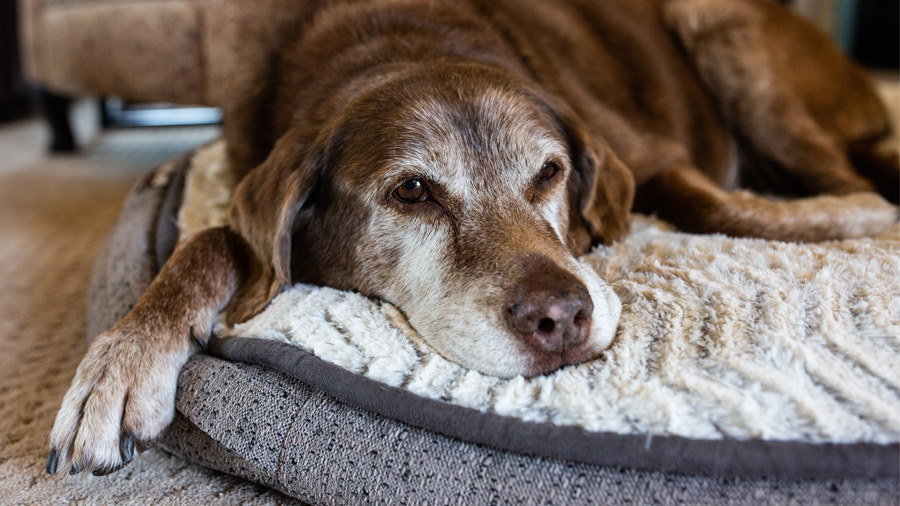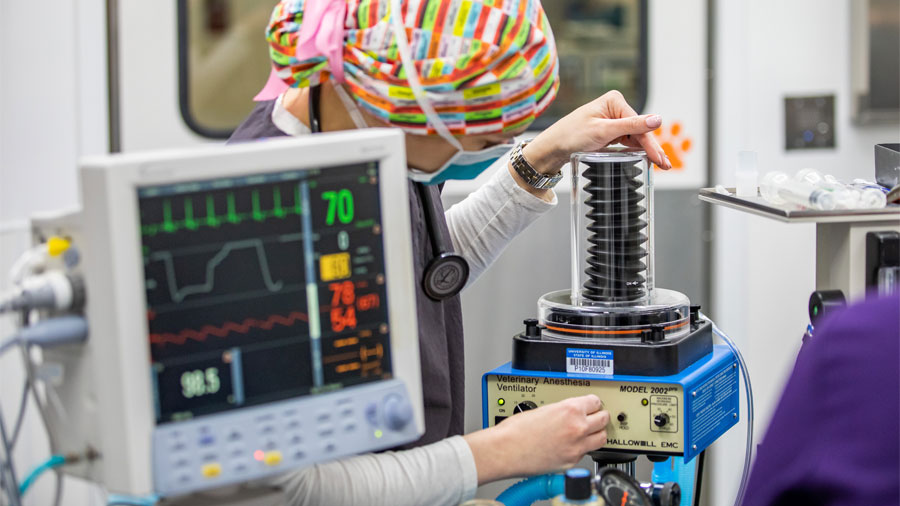Trial seeks nine cats with lung cancer
Yes, cats can get lung cancer. Through a combination of genetic susceptibility and environmental exposures, a cancerous growth can arise just about anywhere in any body. For cats, the lungs are a particularly bad place to get cancer.
Dr. Alycen Lundberg, a veterinary oncologist at the University of Illinois Veterinary Teaching Hospital in Urbana, says “The treatment for this cancer is difficult. Usually by the time there is a diagnosis, the cancer has spread too much and surgery is not an option.”
The symptoms, including weight loss and difficulty breathing, are hard to detect. “Cats are good at hiding their symptoms until they’re starting to feel really awful,” Dr. Lundberg explains. “By the time the cat can no longer hide the discomfort, the cancer is often times late stage.”
Dr. Lundberg is heading a clinical trial for patients with feline pulmonary carcinoma. With funding from the Winn Feline Foundation, the trial offers an exciting approach for treating this difficult cancer in cats. The chemotherapeutic agent called isobutyl-deoxynyboquinone (IB-DNQ), which was created by University of Illinois chemistry professor Paul Hergenrother and his graduate students, has already shown promising results in cats with hard-to-treat oral cancers.
What is IB-DNQ?
“Many of the tumors in cats with lung cancer have exceptionally high levels of a protein called NQO1,” says Dr. Lundberg. IB-DNQ works by targeting this protein.
In the IB-DNQ trial for cats with oral cancer, another cancer in which tumors have abnormally high levels of the NQ01 protein, the tumors reduced in size. Patients experienced only transient and minimal side effects.
“Our best result was a 56% reduction of tumor size,” notes Dr. Lundberg.
About the Clinical Trial
For the lung cancer trial, Dr. Lundberg is seeking at least nine cats that have been diagnosed with feline pulmonary carcinoma via either histopathology or cytology. The disease must be measurable in the cats, and they cannot have been treated with surgery or chemotherapy.
The trial is fully funded for patients after meeting eligibility. It includes 10 consecutive weekday treatments with IB-DNQ as well as blood work and urinalysis each week. The treatments will take place at the Veterinary Teaching Hospital in Urbana.
According to Dr. Lundberg, the ultimate goal of this trial is to find a compound that can treat this cancer by attacking the tumors, keeping them from spreading, and sparing normal tissue in the body.
And if that goal is achieved, the benefits will may reach not only feline patients but human ones as well. “If we find success in this compound, the drug will hopefully be entered into trials for treating human cancer patients as well,” she envisions.
If you have a cat that has been diagnosed with feline pulmonary carcinoma and would like to learn more about this clinical trial, please contact Rebecca Kamerer, at (217) 300-6453 or rmoss81@illinois.edu.
By Hanna Netisingha

![[Dr. Alycen Lundberg]](https://vetmed.illinois.edu/wp-content/uploads/2021/04/pc-lundberg-cat.jpg)


